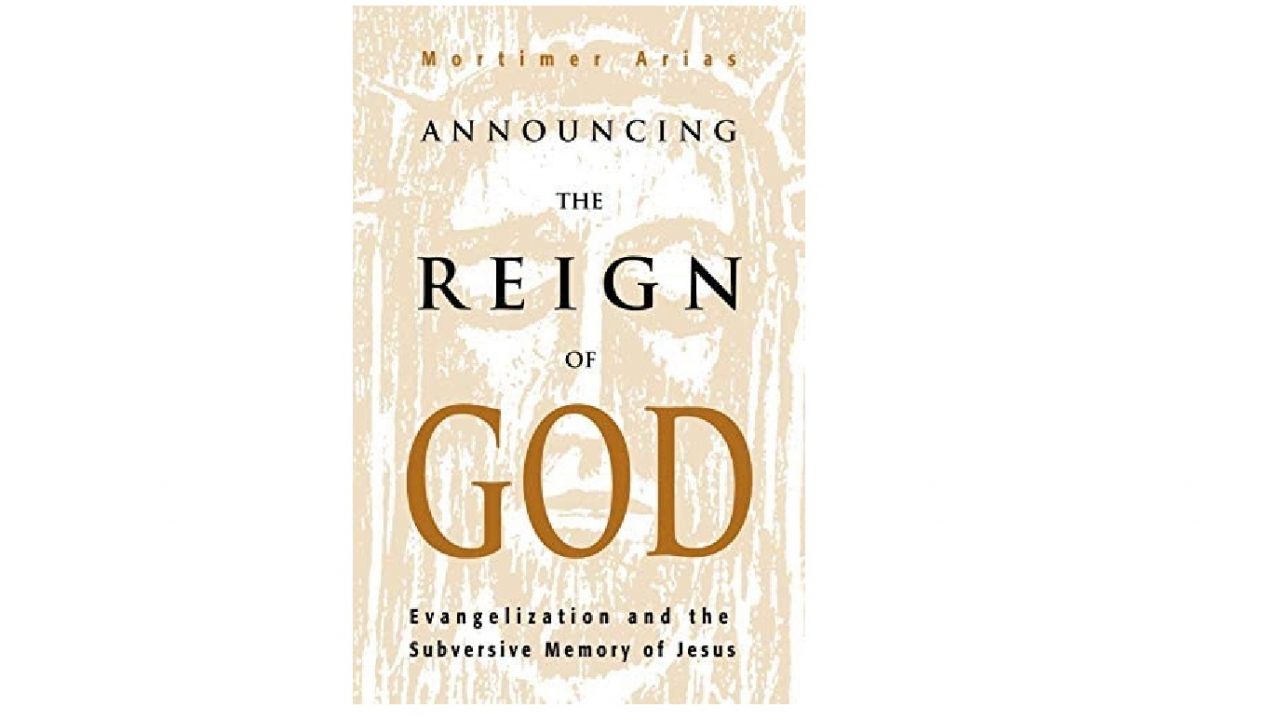From Announcing the Reign of God, Mortimer Arias, 2001, pp 115f.
One thing is absolutely clear: we need to claim and to recover the totality of the biblical gospel for our evangelization. Which means, first of all, that we need to recover the original message of Jesus on the reign of God and the kingdom perspective for our motivation and strategy. We have to integrate Jesus’ message in the Gospels with the totality of the New Testament witness in our theology for evangelization and in our evangelistic message. A purely Pauline theology—mediated through the Reformation and narrowed by some of our historical or sectarian reformulations—will not do it. A watered-down gospel of the “teachings” of the “historical Jesus” on “God’s Fatherhood and human brotherhood” will not do it either, much less a gospel encapsulated in the missiles of contemporary apocalypticism.
By contrast, it is obvious that our traditional minitheologies of evangelization (the “plan of salvation,” or “four spiritual laws” type of kerygmatic reduction) do not do justice to the whole gospel, and they cannot match the desperate needs of the people or the challenges of our troubled world.
We live in a world on the brink of nuclear annihilation with millions starving to death or living subhuman lives in the midst of abundant resources accessible only to a few. The most advanced societies are caught in the idolatries of modern materialism and consumerism, or submerged in the underworld of drug addiction, crime, and esoteric cults. This is a world of untold suffering and oppression, frustrated revolutions, incredible violations of human rights, unbelievable refinements of torture, or rampant genocide. Millions of children are condemned to die of malnutrition before their first or their fifth year of life, or to suffer brain damage for the rest of their lives, such as they are. This world has enormous resources and faces great and challenging tasks—forming new generations, raising human life to the status of God’s revealed purpose, building new societies, and incarnating God’s love in fraternal and caring communities. In such a world, it will not be enough to go around the globe “saving souls” with a census chart to get individuals to make “instant decisions” for Christ.
We need to recover the capacity to dream. The reign of God is God’s own dream, his project for his world and for humanity! He made us dreamers, and he wants us to be seduced by his dream and to dream with him. We might say, paraphrasing J. H. Forest, that “It is not we who dream but God who dreams in us.”
Much preaching is also inspired by fear and manipulates with fear. But God has promised us that “your young [people] shall see visions, and your old [people] shall dream dreams” (Acts 2:17). And that is what the Holy Spirit was sent for! Let us then dream together with prophets, poets, apocalypticists, and apostles. The proclamation of the kingdom in the power of the Spirit can enlarge our horizons, raise our hopes, and make us dream again. Nothing is more urgent in our world today to both the restless peoples of the Third World and the fearful peoples of the First and Second Worlds.
We need to recover, with the totality of the gospel of the kingdom, the prophetic evangelization of the Bible tradition. The annunciation of the kingdom of God demands the denunciation of the kingdoms of men and of powers, which are destroying human life and exploiting creation. And we need to name the idols. “The spiritual powers in the air” are also concrete and visible as the economic, financial, industrial, technological, political, cultural, and military powers of “this dark world.” We need to be constantly reminded that “our fight is not against human foes, but against . . . powers” (Eph. 6:12, NEB). Our evangelization falls short of the mark if we limit ourselves to naming the personal sins and commending the personal virtues without pointing to collective sins, structural powers, and societal trends. This is what a kingdom perspective can do for us.




